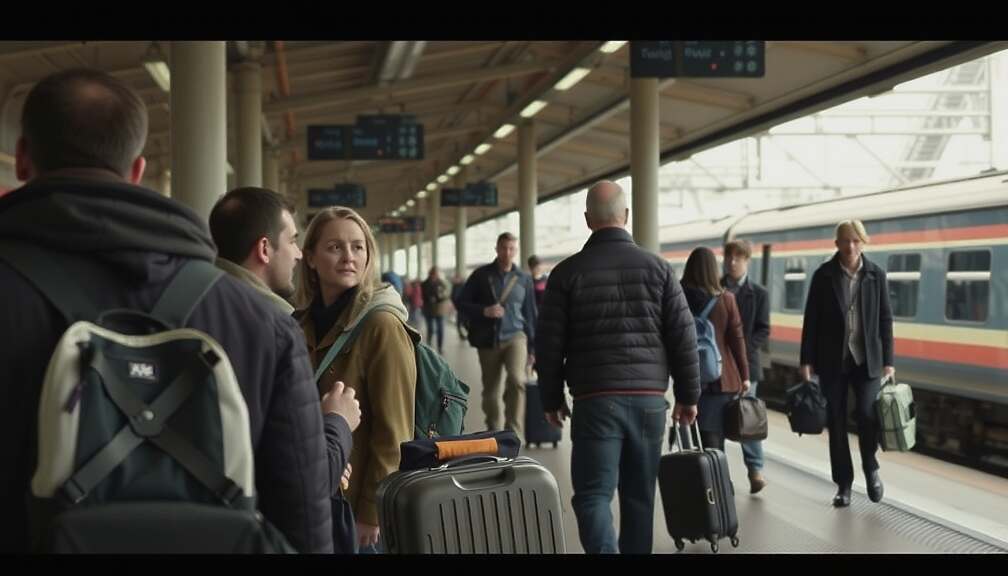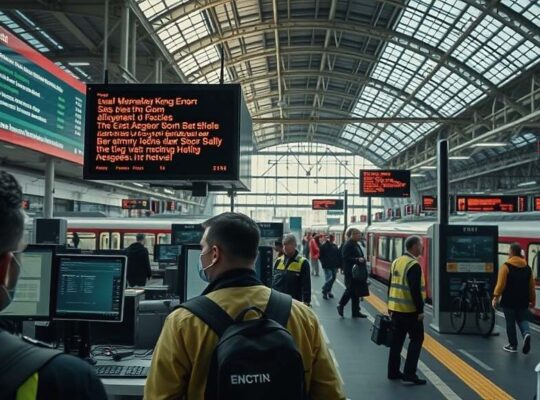The Lufthansa Group is signaling a significant push to integrate rail travel with its air services, unveiling plans for expanded cooperation with Deutsche Bahn. Lufthansa Airlines CEO Jens Ritter articulated a vision centered on enhancing passenger convenience and directly challenging the perceived shortcomings of purely air-based travel, particularly concerning baggage handling.
Ritter’s proposal envisions a seamless experience where passengers can check luggage at major train stations like Hamburg or Cologne, with the bags then appearing at their final flight destination – a direct response to persistent passenger complaints about cumbersome baggage transfers. This initiative, currently under development in collaboration with Deutsche Bahn, highlights a calculated strategy to attract travelers who prioritize ease and interconnectivity.
However, the move isn’t solely about passenger convenience. Ritter’s call for significant infrastructure investment, specifically demanding an ICE (Intercity-Express) rail connection to Munich Airport, subtly underscores the political pressure the airline is placing on the German government. Securing this vital rail link would dramatically improve accessibility to a major European hub and represents a key condition for Lufthansa’s long-term integration of rail options. The reliance on government infrastructure spending also raises questions about the sustainability of this strategy, with the airline effectively tying its rail expansion plans to external political agendas.
Remarkably, while championing rail integration, Ritter defended the continuation of certain less-essential air routes, like the Frankfurt-Westerland connection. Justifying the significant time disparity – approximately eight hours by train versus one hour by plane – suggests a pragmatic approach, prioritizing specific regional connectivity over the blanket pursuit of greener travel alternatives. This position could draw criticism from environmental groups arguing for a more aggressive reduction in air travel.
In a move defying industry trends, Ritter reaffirmed Lufthansa’s commitment to paper boarding passes, contrasting sharply with the digital-first approach adopted by rivals like Ryanair. This seemingly minor detail reveals a nuanced understanding of the diverse customer base, acknowledging that not all passengers are technologically inclined. However, it also raises questions about Lufthansa’s overall commitment to embracing digital innovation and potentially alienates a segment of increasingly tech-savvy travelers. The divergence in approach between Lufthansa and budget carriers highlights a fundamental difference in target demographics and long-term operational philosophies.












